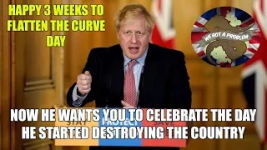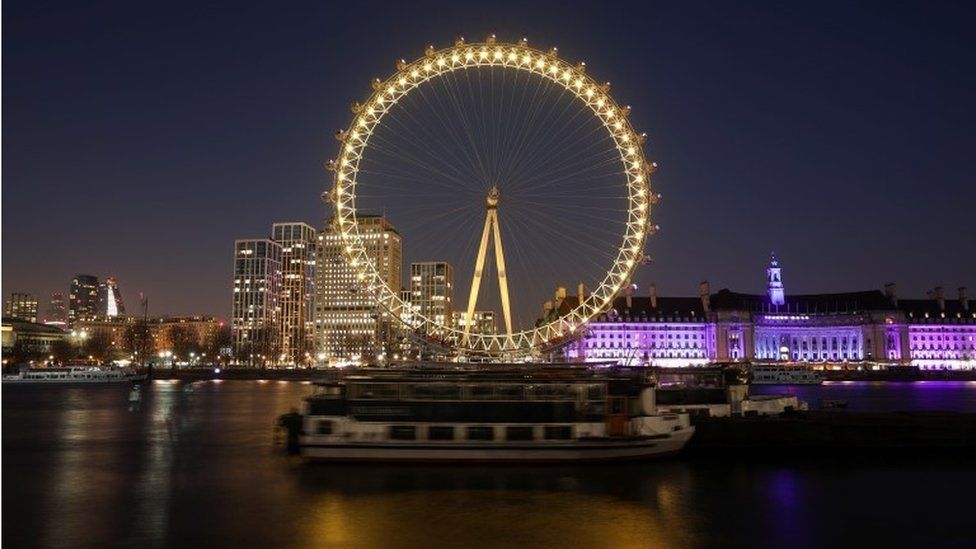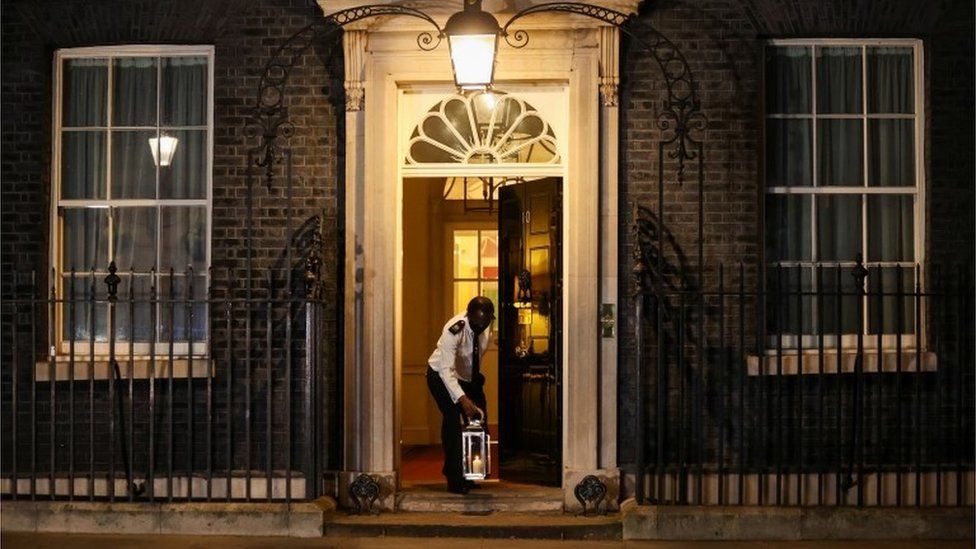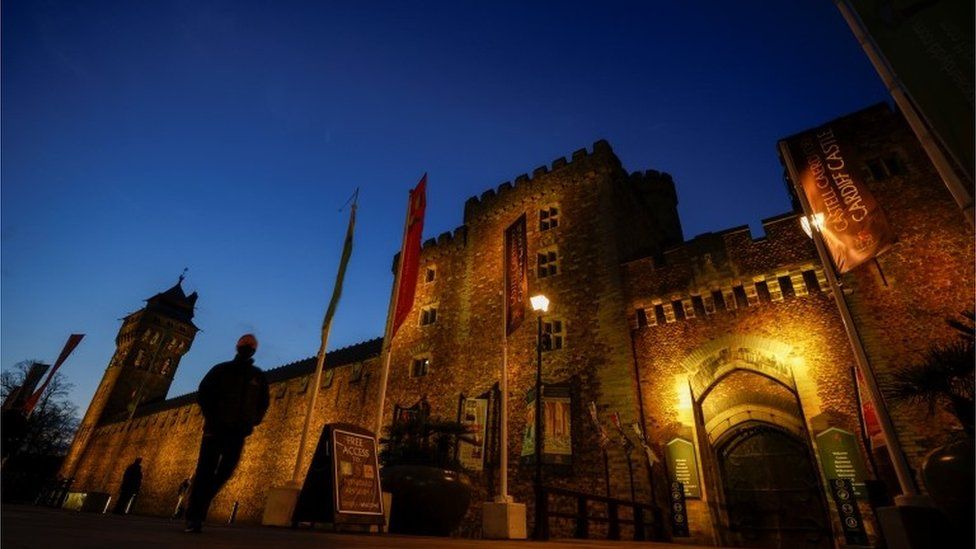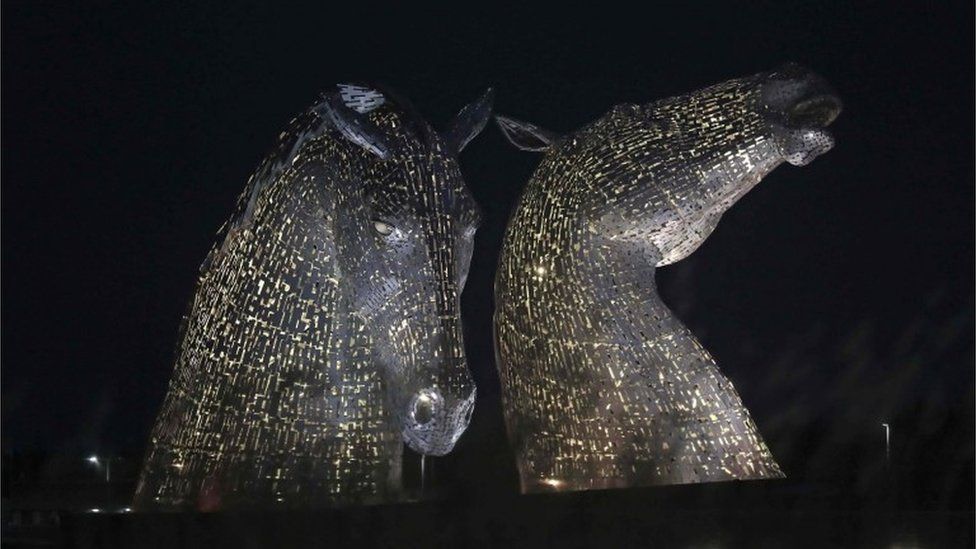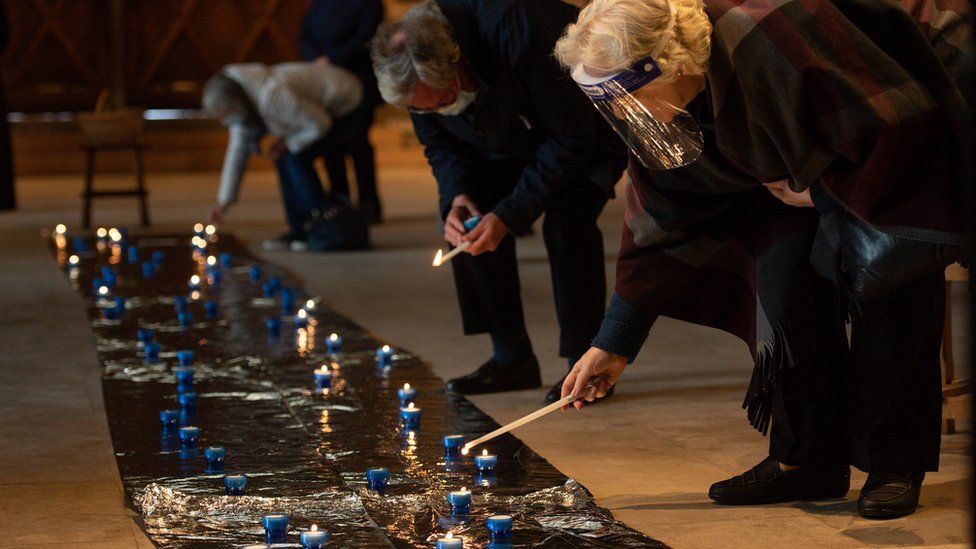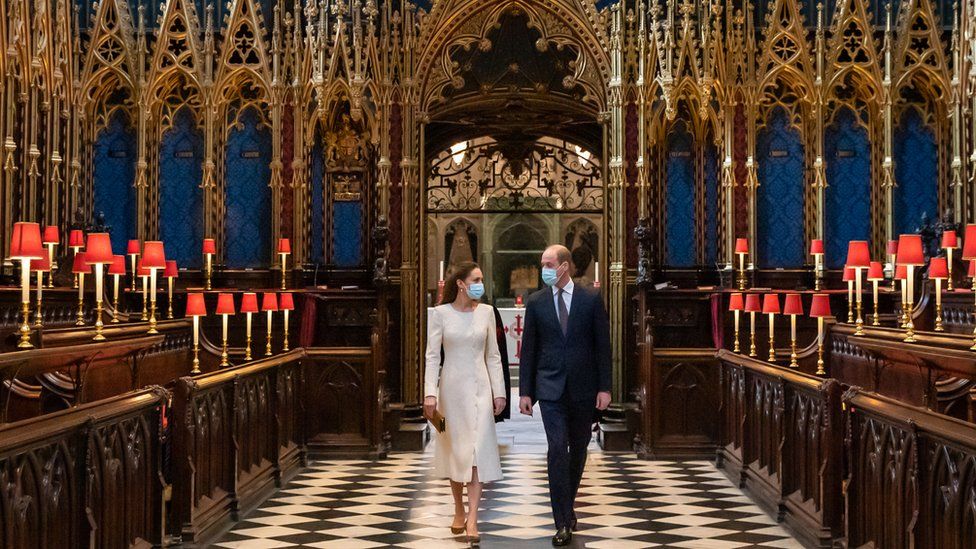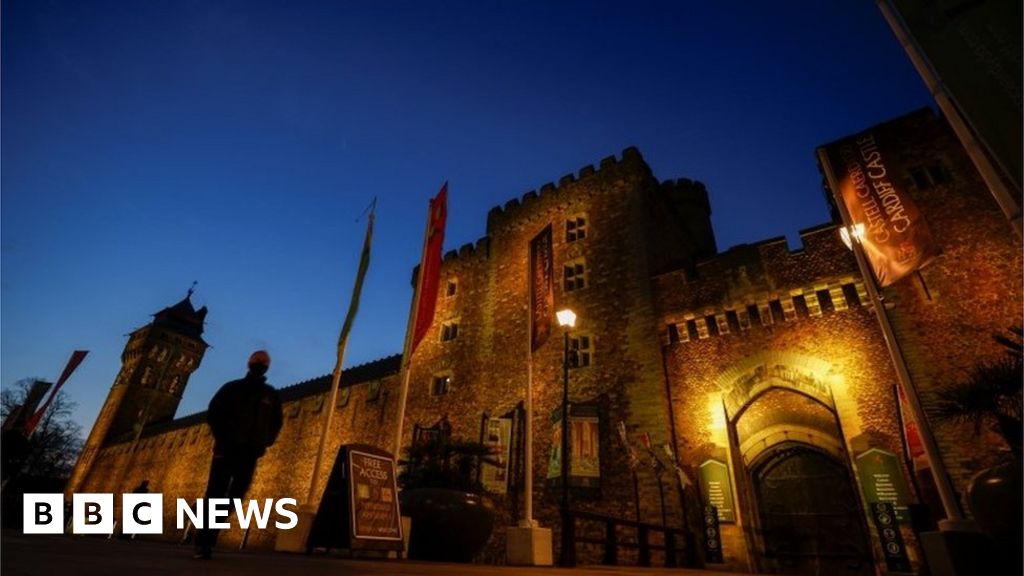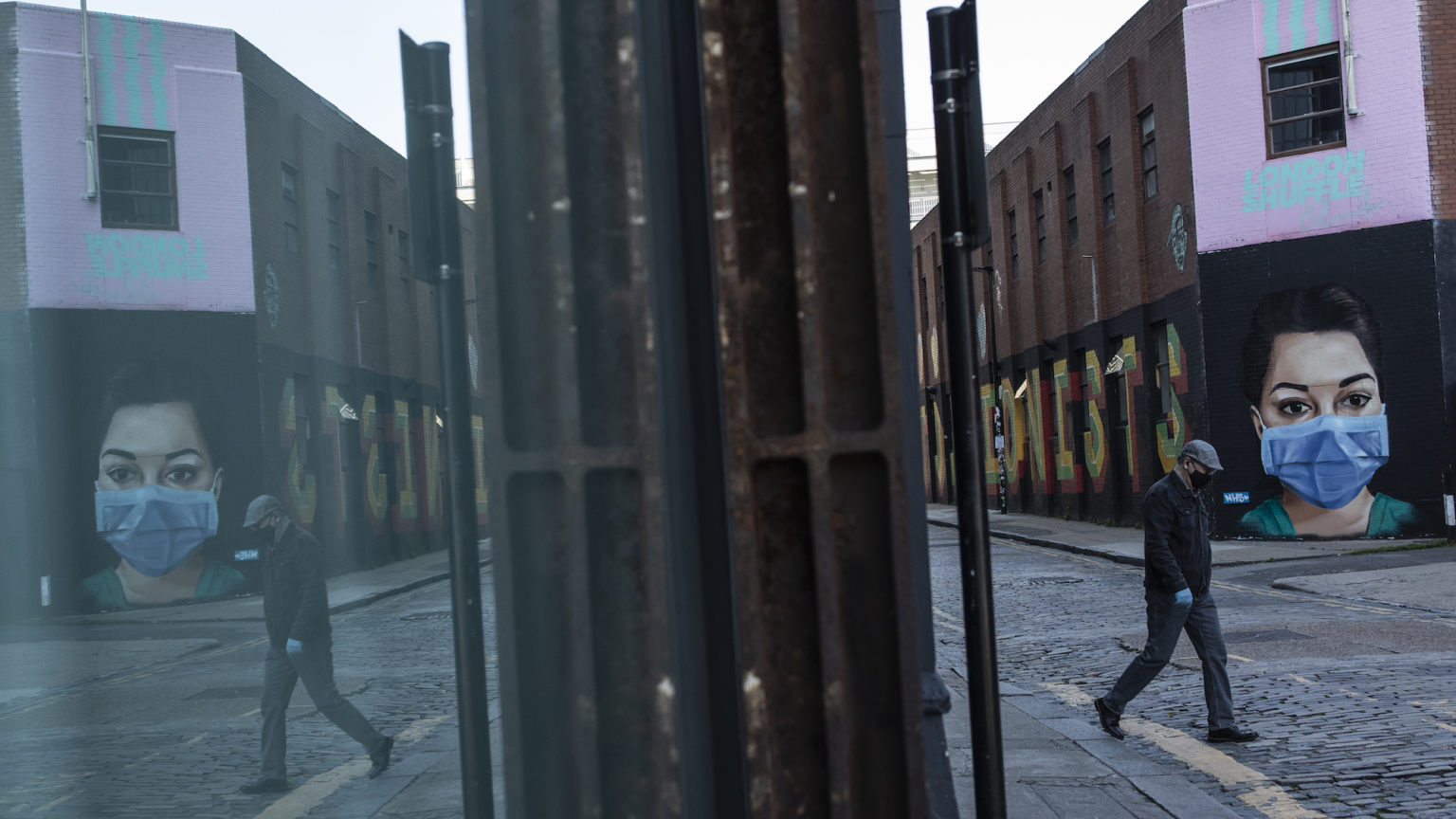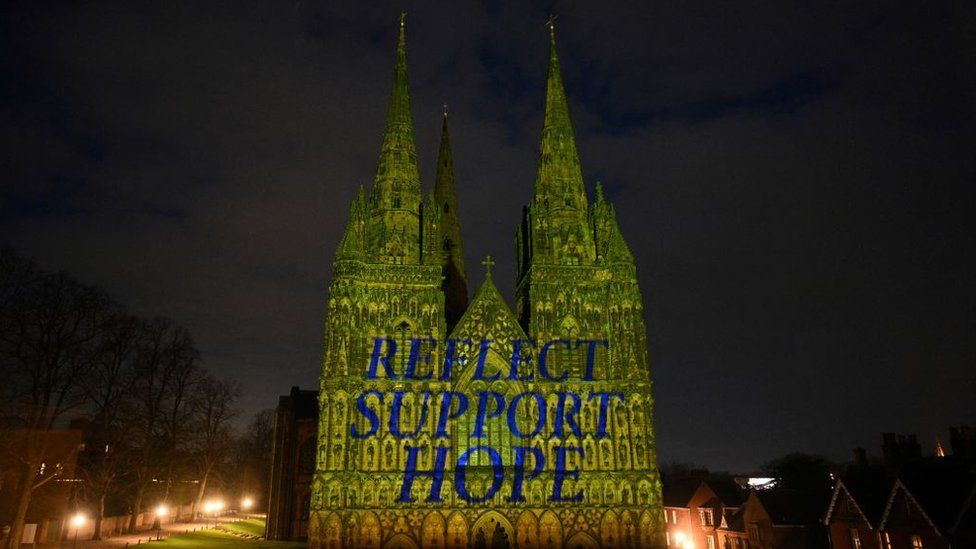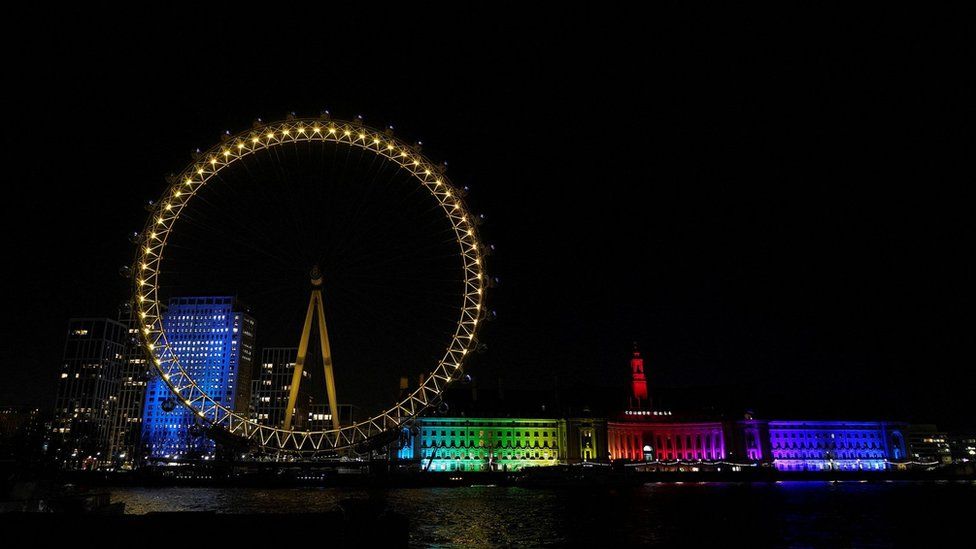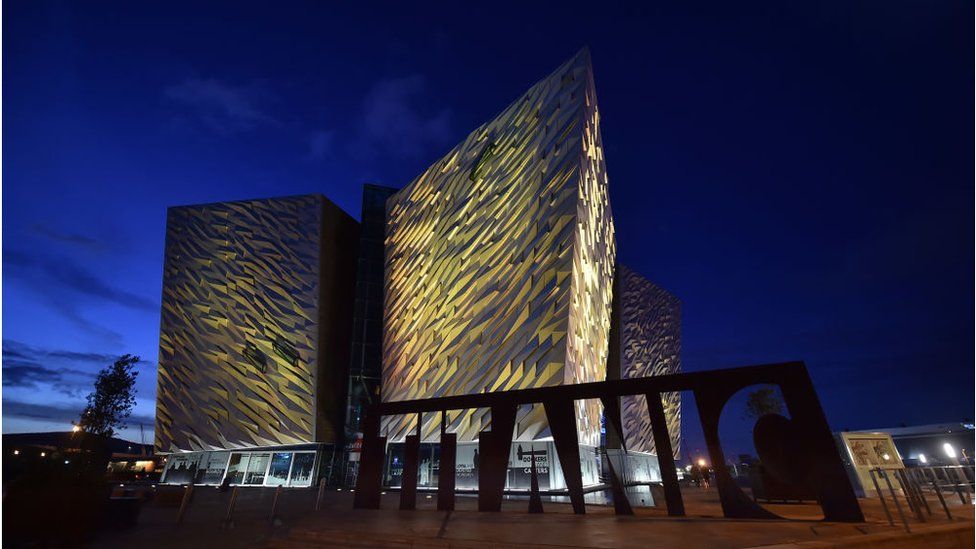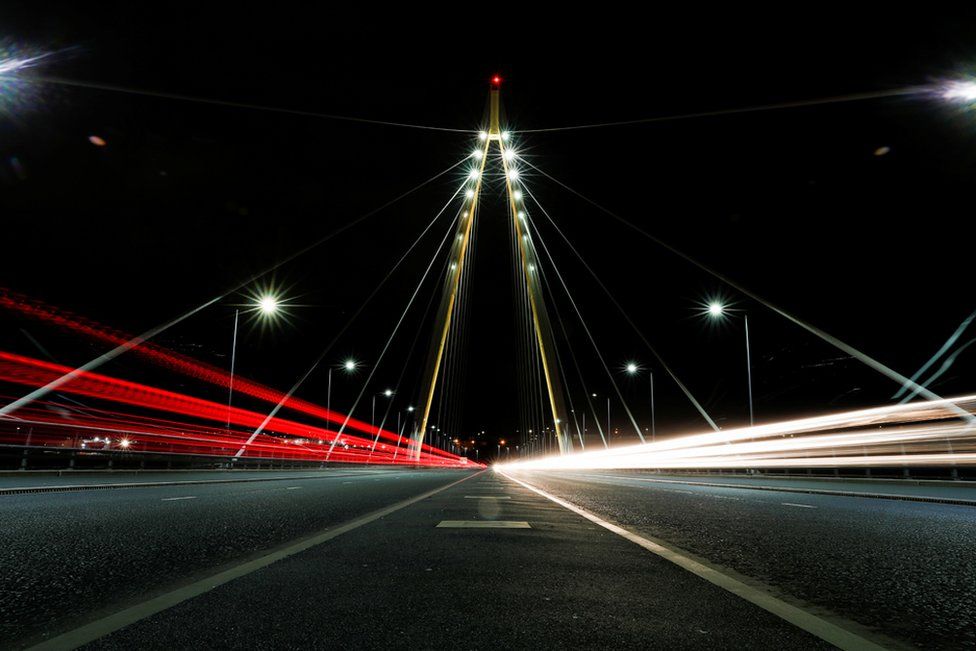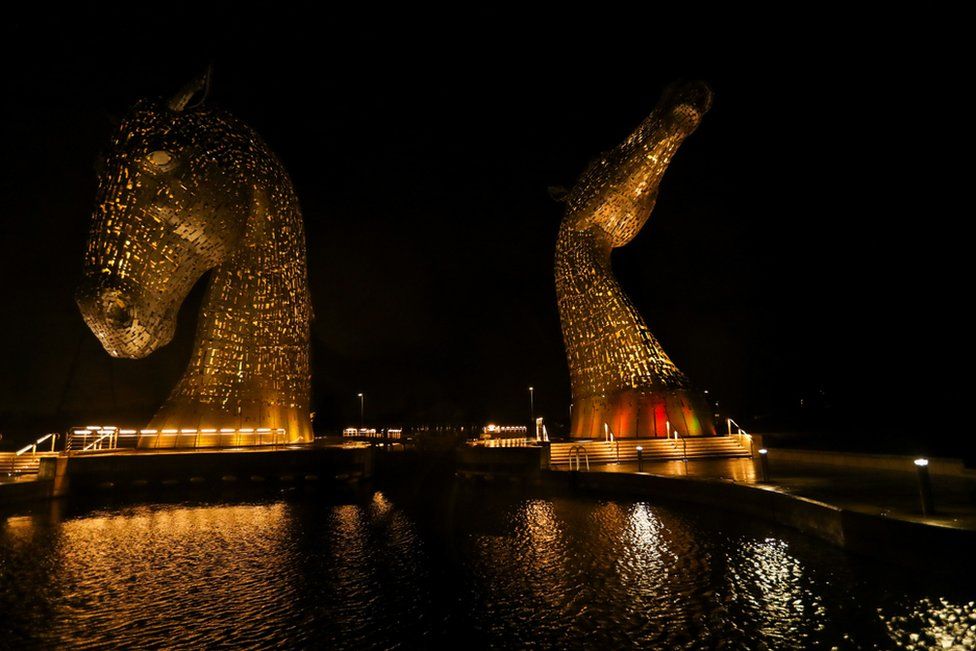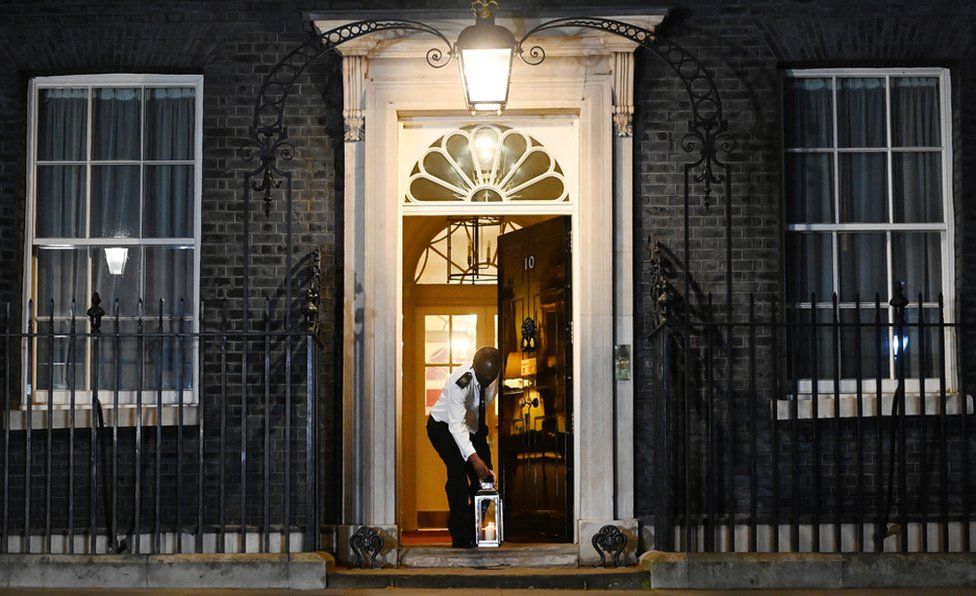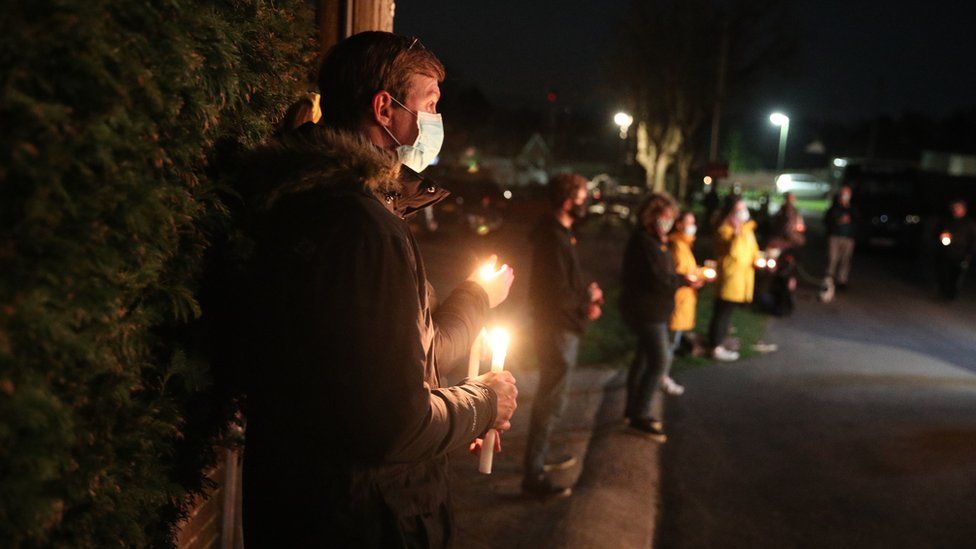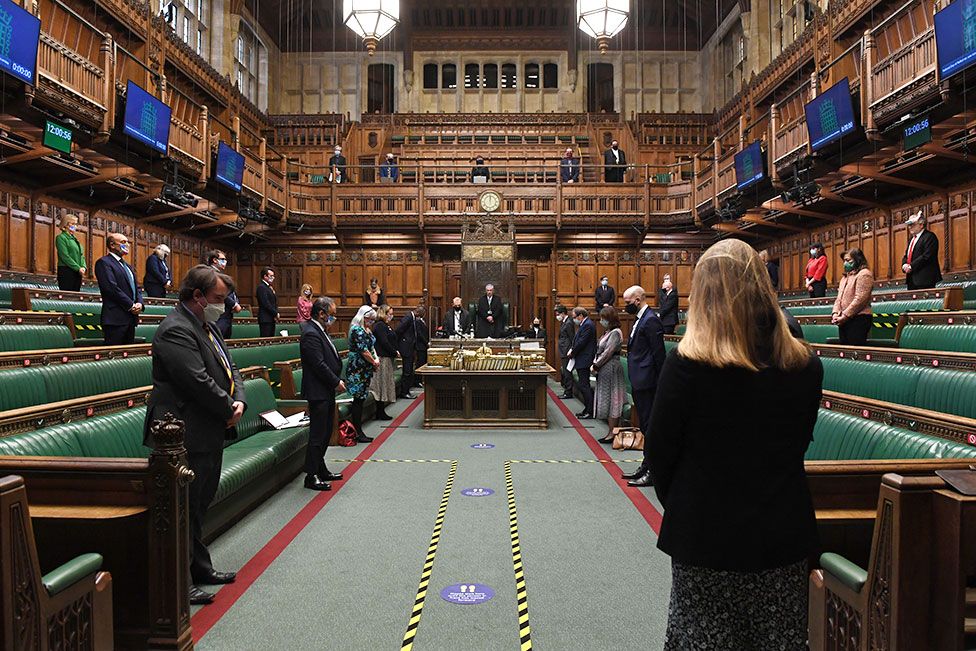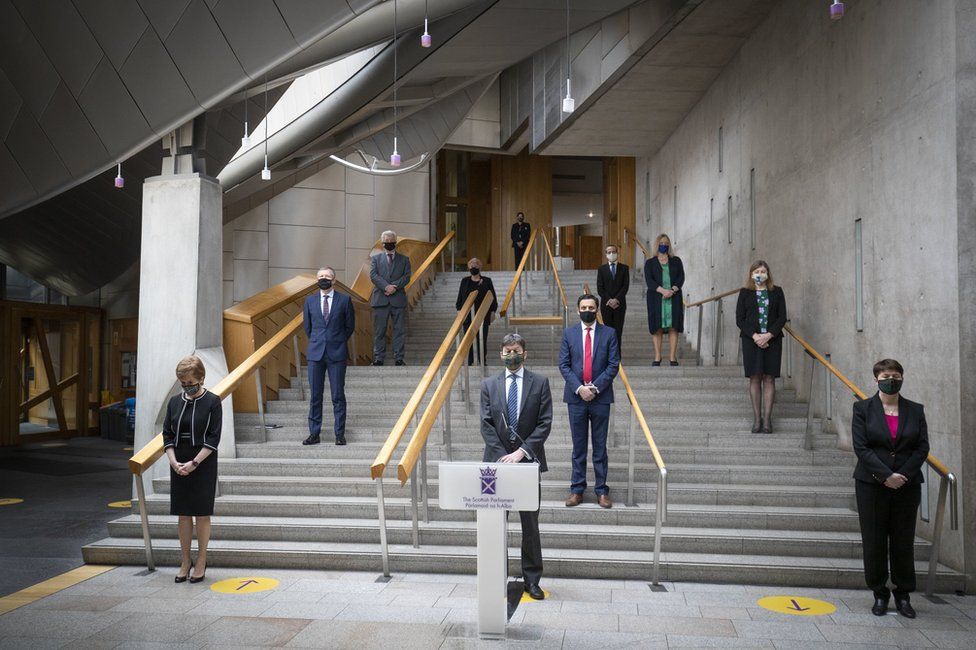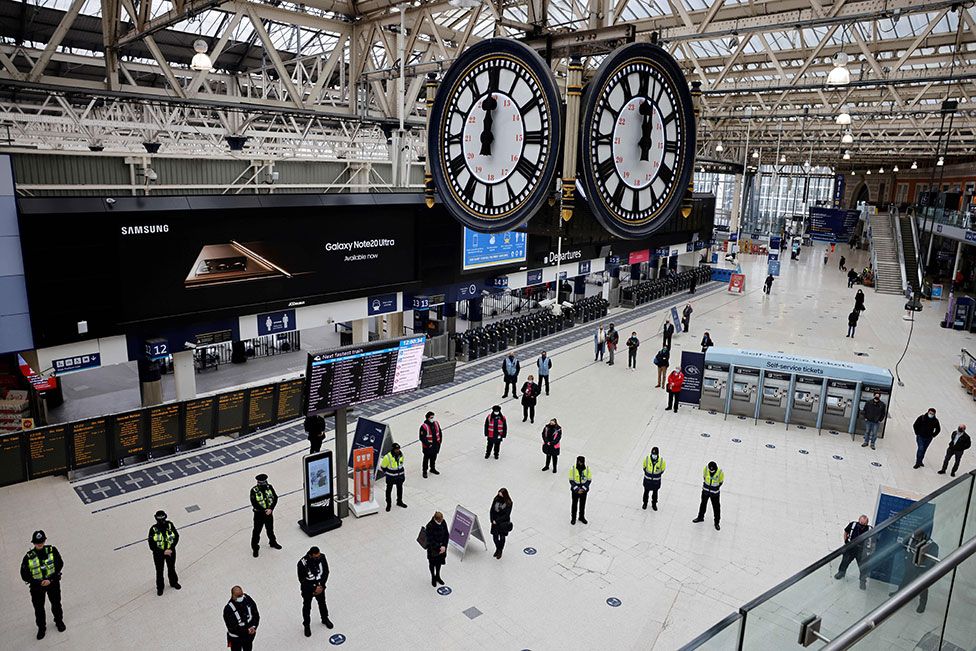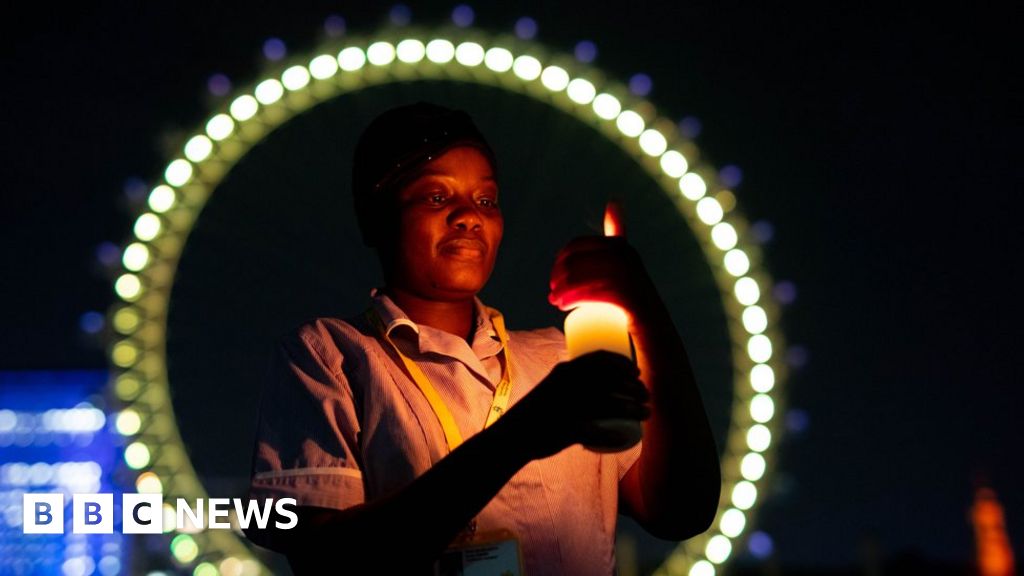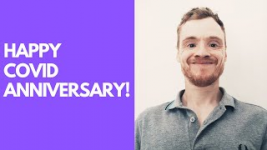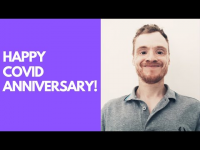Covid: UK marks one year since the first lockdown
BBC NewsTuesday 23rd March 2021
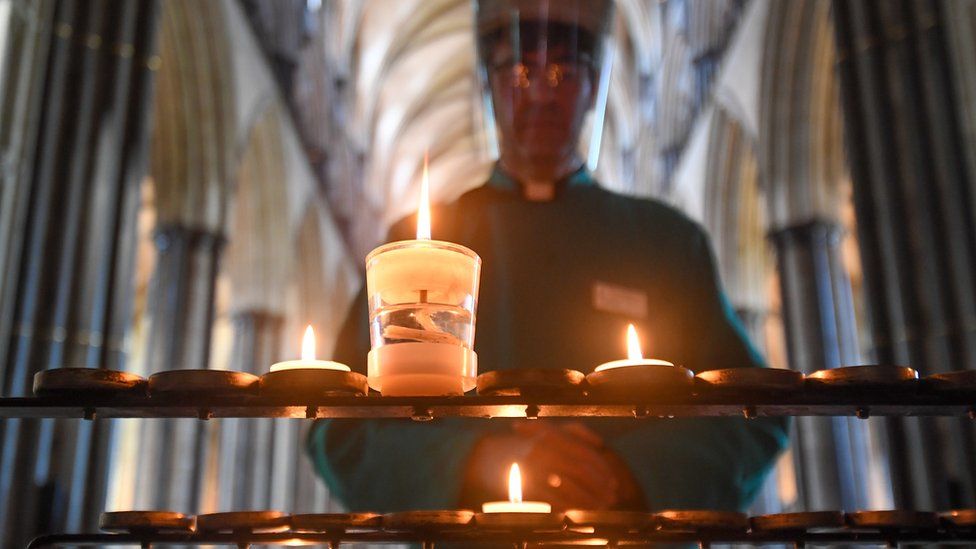
The UK is marking one year since the first coronavirus lockdown was announced.
On 23 March 2020 Boris Johnson outlined measures to stop the spread of Covid-19. Since then, the UK's official death toll has risen from 364 to 126,172.
With the lockdown have come tough restrictions on socialising, closures of schools, pubs and shops with many rules currently still in place.
A minute's silence will be held at midday as part of a day of reflection.
A year on, Mr Johnson has praised the "great spirit" shown since that moment and he offered his condolences to those who have been bereaved during the pandemic.
People are also being encouraged to stand on their doorsteps at 20:00 GMT with phones, candles and torches to signify a "beacon of remembrance".
It is being organised by end-of-life charity Marie Curie.
The prime minister, who himself spent time in hospital seriously ill with Covid, said the last year had taken a "huge toll on us all" and said the anniversary was an opportunity to reflect on the year - "one of the most difficult in our country's history".
Health Secretary Matt Hancock told BBC Breakfast the last year had been "probably the hardest year in a generation" but treatments and vaccines now provided "hope".
On the day of the first nationwide lockdown, it was announced that 340 people had died with the virus.
That total was later adjusted upwards when the way that figure is measured was changed during the summer.
From the start, ministers said they were putting their faith in the measures slowing down the impact of the virus while scientists in the UK and around the world found a way to combat what had become both a threat to health and to the population's freedom to enjoy life.
That came with the development of several vaccines - and the UK has already seen 28 million people receive a first dose of either the Pfizer-BioNTech or Oxford-AstraZeneca vaccines.
Over the months, scientists, politicians and the public have assessed several key figures that are updated each day showing the number of new cases, the numbers in hospital, how many are being treated in ventilation beds, and how many have died within 28 days of a positive Covid test.
In recent weeks all of those measures are down - as a result of the lockdown and the effects of the vaccine rollout - but on Monday Mr Johnson warned that the effects of a third wave of coronavirus will "wash up on our shores" from Europe and said the country should be under "no illusion" the country will feel the effect of increasing cases on the continent.

Timeline: How did the UK lock down?
16 March 2020: The public are told to avoid non-essential travel and social contact and to work from home where possible18 March: Schools are told to close from 20 March until further notice, except for the children of keyworkers and vulnerable pupils
20 March: Restaurants, cafes and pubs are told to close
23 March: The prime minister announces the first national lockdown, telling people they will only be allowed to leave their homes for limited reasons. Non-essential shops are told to close

To mark the anniversary, London's skyline will turn yellow with landmarks including the London Eye, Trafalgar Square and Wembley Stadium lighting up at nightfall.
Other notable buildings that will be illuminated include Cardiff Castle and Belfast City Hall, while churches and cathedrals will toll bells, light thousands of candles and offer prayers.
Scotland's First Minister Nicola Sturgeon said in a tweet that her thoughts were with all of those who had lost a loved one to Covid or other causes in the past year.
"The restrictions in place have made the grieving process even more difficult than it would have been," Nicola Sturgeon added.
Welsh First Minister Mark Drakeford will take part in a televised commemorative event, which will be broadcast on BBC One Wales and S4C at 17:15 GMT.
More than 250 organisations are supporting the day of reflection, including 82 leaders from religious groups and cross-party politicians, care organisations, charities, businesses, emergency services, public sector bodies and community groups.
Health leaders have paid tribute to their colleagues and the public for their support during the crisis.
Dame Donna Kinnair, general secretary of the Royal College of Nursing, said: "After a year of sacrifices and gestures, great and small, we are taking our turn to thank the public. In a time of loss and fear, they helped us to keep digging deeper."
Dr Susan Hopkins, Public Health England strategic response director for Covid-19, said the virus had "left no one untouched" and she thanked public health workers "who have worked long and difficult hours to help keep the country safe".


A year ago today, fewer than 1,000 people in the UK had died with coronavirus.
The figure now stands at more than 126,000.
The prime minister said then there were "no easy options" and the way ahead would be "hard".
But few would have imagined the scale of the loss of lives - or liberties - to come; the restrictions we would still be facing 12 months on.
Indeed, as millions of us watched, listened and stopped a year ago, Boris Johnson said the restrictions would be reviewed three weeks later, and would be relaxed, if possible.
This easing of the rules came months rather than weeks later, soon to be followed by their reimposition as summer gave way to autumn and winter.
As we enter a second year of restrictions, there is hope life will soon get better.
But the shadow of the pandemic looms large.

Elsewhere, the Archbishop of Canterbury Justin Welby said: "This day of reflection is an opportunity to pause and remember all that's happened over the past year, to mourn those who have died but also to give thanks for those who have looked after us and our communities."
Labour's shadow Cabinet Office minister Rachel Reeves said her thoughts were with those who had lost loved ones and that a public inquiry would be key to learning the lessons from the pandemic.
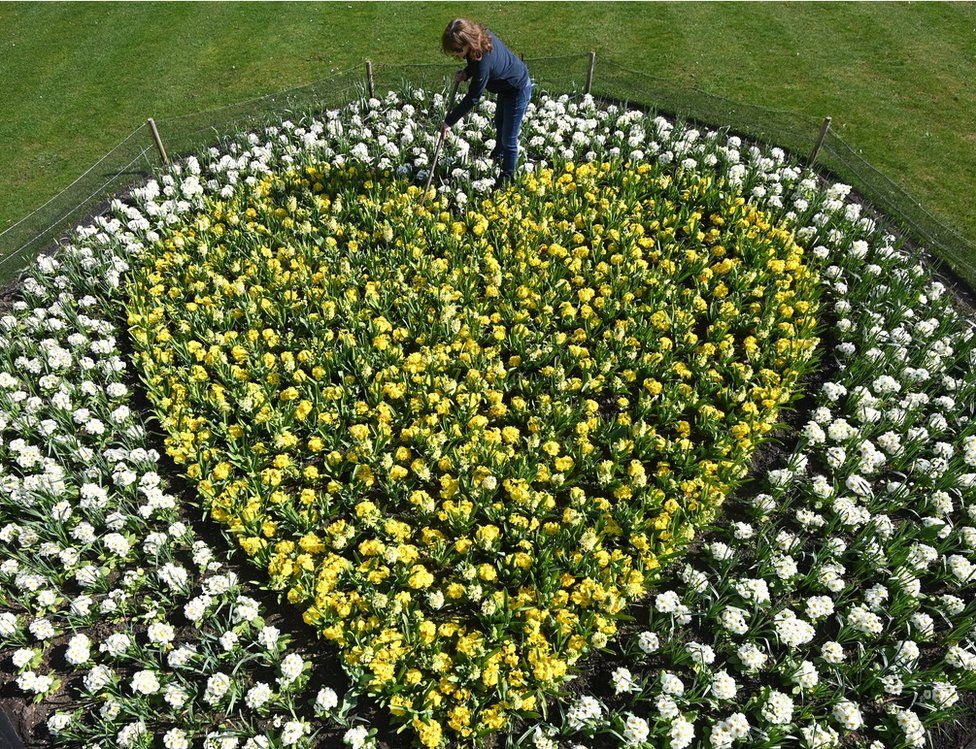
Doctors, nurses and teachers are calling on the prime minister to formally recognise an annual Covid Memorial Day - paying tribute to the efforts of front-line workers during the pandemic.
They are among those supporting a cross-party campaign, which has seen more than 50 MPs and peers sign a letter to the prime minister asking for a minute's silence every year on 23 March to remember the lives lost.
Separately the Royal College of Nursing, the Local Government Association and the NASUWT teachers' trade union backed the initiative.
Meanwhile, relatives of people who died with coronavirus have criticised the prime minister for "refusing" to meet them.
The Covid-19 Bereaved Families for Justice campaign, which is calling for an urgent public inquiry into the government's handling of the pandemic, said they had written to the government six times seeking a meeting but had been refused.
A UK government spokeswoman said: "The prime minister has always been clear there will be opportunities to look back, analyse, and reflect on all aspects of the pandemic.
"This will include an independent inquiry at the appropriate time. For now, it is right we focus entirely on saving lives."

Covid: UK marks one year since the first lockdown
The Queen reflects on the "grief and loss felt by so many" as the country holds a minute's silence.
Last edited:
